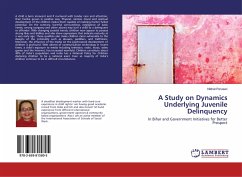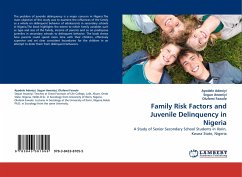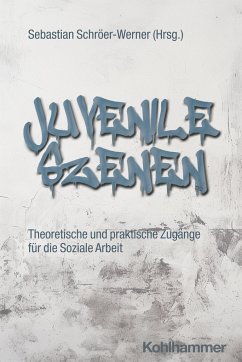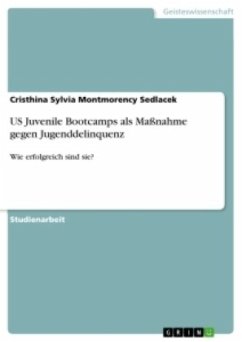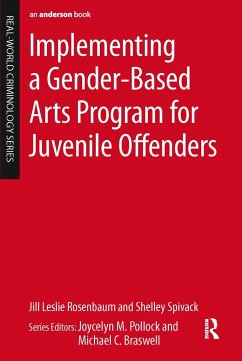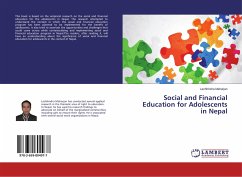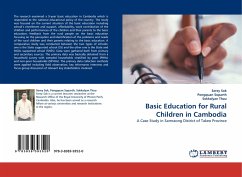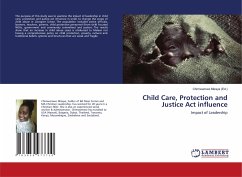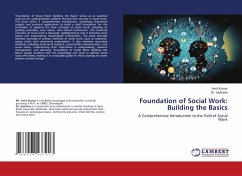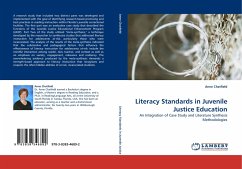
Literacy Standards in Juvenile Justice Education
An Integration of Case Study and Literature Synthesis Methodologies
Versandkostenfrei!
Versandfertig in 6-10 Tagen
52,99 €
inkl. MwSt.

PAYBACK Punkte
26 °P sammeln!
A research study that included two distinct parts was developed and implemented with the goal of identifying research-based promising and best practices in reading instruction within Florida s juvenile correctional facilities. The first part was an evaluative case study that described the functions of the Juvenile Justice Educational Enhancement Program (JJEEP). Part Two of the study utilized "meta-synthesis," a technique developed by the researcher to synthesize studies that addressed literacy instruction for adolescents at-risk, particularly those who were incarcerated. The analysis of the r...
A research study that included two distinct parts was developed and implemented with the goal of identifying research-based promising and best practices in reading instruction within Florida s juvenile correctional facilities. The first part was an evaluative case study that described the functions of the Juvenile Justice Educational Enhancement Program (JJEEP). Part Two of the study utilized "meta-synthesis," a technique developed by the researcher to synthesize studies that addressed literacy instruction for adolescents at-risk, particularly those who were incarcerated. The analysis of the results of the meta-synthesis indicated that the substantive and pedagogical factors that influence the effectiveness of literacy instruction for adolescents at-risk include the mindful interaction among reader, text, teacher, and context as well as an emphasis on variety, engagement, relevance and resiliency. The overwhelming evidence produced by the meta-synthesis demands a strength-based approach to literacy instruction that recognizes and respects the often hidden abilities of at risk, incarcerated students.



